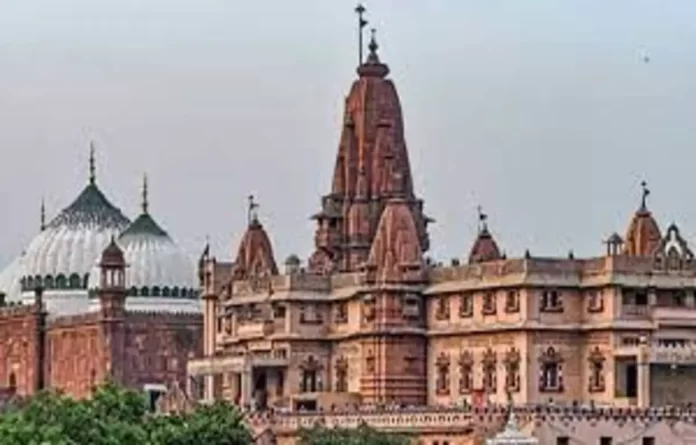The Supreme Court once again extended its stay on the Allahabad High Court December 14 order directing survey of Shahi Eidgah mosque attributing the Krishna Janmabhoomi temple in Mathura. The court also postponed to August 2024 a batch of pleas against the orders passed by the High Court.
A bench comprising Justice Sanjiv Khanna and Justice Dipankar Datta was hearing the special leave petition filed by the mosque committee against the order passed by the Allahabad High Court in December 2023, permitting the appointment of a court commissioner to inspect the Shahi Idgah mosque.
The bench was also hearing another SLP lodged by the management committee of the Shahi Eidgah Mosque, Mathura and the Uttar Pradesh Sunni Central Waqf Board against a May 2023 order of the Allahabad High Court transferring to itself a clutch of suits over the land dispute.
On Monday, while directing the relisting of the matters in the week commencing on August 5, 2024, the Supreme Court stated that the interim order will continue to operate till the next date of hearing. Earlier on January 16, the apex court stayed the implementation of the Allahabad High Court order, which appointed the commission to inspect the mosque.
The top court further clarified it has not stayed the proceedings in the suits pending in the High Court. Advocate Tasneem Ahmadi appeared for the mosque committee and Senior Advocate Shyam Divan appeared for the plaintiffs.
The dispute is related to Mughal emperor Aurangazeb-era Shahi Idgah mosque at Mathura, which is alleged to have been built after demolishing a temple at the birthplace of Lord Krishna. The High Court on December 14, 2023 permitted the primary survey of the Shahi Idgah complex adjacent to the Shri Krishna Janmabhoomi Temple in Uttar Pradesh’s Mathura by a court-monitored three-member team of advocate commissioners.
The High Court had then passed the judgment on a plea filed on behalf of the deity (Bhagwan Shree Krishna Virajman) through Hari Shankar Jain and others. The plea submitted that the mosque was built by Mughal emperor Aurangzeb after demolishing a part of Lord Krishna’s birthplace.
Furthermore, the petitioners also claimed ownership over the entire 13.37 acres of land on which the structures are situated. They also challenged the 1968 agreement between the Shahi Idgah Mosque Committee and the Shri Krishna Janmabhoomi Trust that allowed the mosque to use the land on which it was located.


